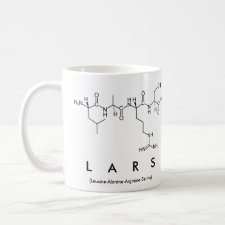
Authors: Andersson L
Article Title: Preparation of amino-acid ester-selective cavities formed by non-covalent imprinting with a substrate in highly cross-linked polymers.
Publication date: 1988
Journal: Reactive Polymers, Ion Exchangers, Sorbents
Volume: 9
Issue: (1)
Page numbers: 29-41.
DOI: 10.1016/0167-6989(88)90047-5
Abstract: Methods explored in order to make molecular imprints with phenylalanine ethyl esters in styrene and acrylic polymers using a non-covalent imprinting technique are described. Amino acid ester-selective polymers were prepared after ion-pair association of substrate (print molecule) and carboxyl-containing monomers in the polymerization step. A high concentration of cross-linking agents (divinylbenzene or ethylene glycol dimethacrylate) was present in the polymerization mixtures in order to produce macroporous polymers of high rigidity. After polymerization, polymers were washed free from print molecules and the substrate-selective polymers formed were examined by incubation of the polymers with racemic mixtures of doubly radiolabelled phenylalanine ethyl ester. Binding experiments in batch and chromatographic procedures have been performed. It was found that separation factors determined for polymers prepared in the presence of D- or L-phenylalanine ethyl ester were different from one, indicating that the polymers formed were chiral. It was also found that the polymers interacted preferentially with the enantiomer of the print molecule present in the polymerization mixture. Finally, a synthetic procedure has been worked out for making new amino acid-based cross-linkers suitable for preparation of substrate-selective acrylic polymers. The method utilizes modification of aminoalcohols by acryloyl chloride substitution.



Join the Society for Molecular Imprinting

New items RSS feed
Sign-up for e-mail updates:
Choose between receiving an occasional newsletter or more frequent e-mail alerts.
Click here to go to the sign-up page.
Is your name elemental or peptidic? Enter your name and find out by clicking either of the buttons below!
Other products you may like:
 MIPdatabase
MIPdatabase









